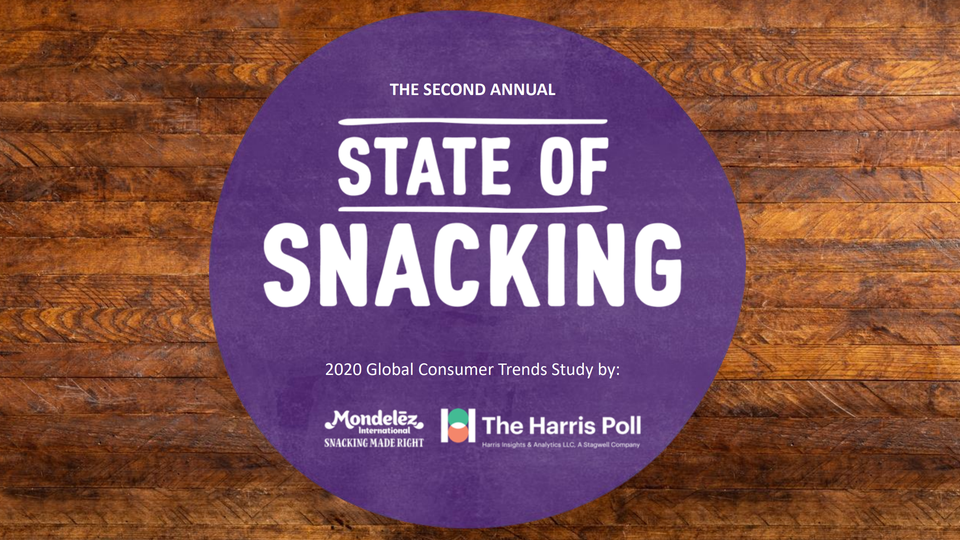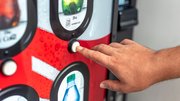Vending
Pandemic boosts consumer snacking, Mondelez survey finds
The second annual State of Snacking from Mondelez International found that nearly 90% of consumers are snacking more or the same during the pandemic than before.

November 12, 2020
COVID-19 hasn't cut into consumer snacking, according to the 2020 State of Snacking report from Mondelez International Inc.
The second annual report found 88% of consumers are snacking more (46%) or the same (42%) during the pandemic than before, with millennials and those working from home especially likely to prefer snacks over meals (70% and 67%, respectively).
The State of Snacking report, developed in partnership with consumer polling specialist The Harris Poll, is based on research conducted among thousands of consumers across 12 countries.
More than half of respondents said snacking has been a "lifeline" during the pandemic (52%), especially parents working from home (69%).
Snacking is also an antidote for loneliness and an avenue for connection, as three in four global adults have made a connection with others via food in the last six months (77%), including making a snack together (40%), giving a snack as a gift (31%), or grocery shopping for someone who could not go themselves (29%).
Snacks and health
Consumers also continue to highlight the importance of snacks that enable them to lead healthier lifestyles and boost emotional well-being.
Snacking at home is providing consumers with more opportunities for mindful snacking, with two thirds (66%) of respondents noting they now have more control over their portion sizes and that they are now more aware of the snacks their bodies need (64%).
Snacks are also nourishing their "body, mind and soul during these strange times," (64%), with immunity-boosting snacks particularly top of mind (56%), and nearly two-thirds of respondents noted that snacking has given them "much needed moments" to themselves (65%).
A global change
Snacking around the world, which was already a rapidly increasing behavior, has only accelerated as consumers spend more time at home. At the same time, the majority of respondents see snacking as a growing part of their everyday lives in the future.
Two-thirds believe the current pandemic will have a long-term impact on how we consume snacks as a society.
Nearly two-thirds of global adults plan to continue eating small snacks throughout the day, as opposed to fewer large meals (64%).
Six in 10 shared that snacking will be part of their "new normal" even after the pandemic ends (58%).
Comfort is the top driver of snacking this year, as more than half of global adults have been buying nostalgic snack brands from childhood (53%) and snacks that bring back good memories (59%) during the pandemic.
As snacking increases, so too does the focus on healthy products and ingredients.
More than half of global adults have relied on snacks for nourishment during the pandemic (54%), attesting that snacks have been nourishing to their body, mind and soul during the pandemic.
Snacking goes virtual
Virtual snack shopping has reached a tipping point, with almost of half of respondents buying online.
Half of global adults have started to buy snacks online more often than they do in-store or offline (47%), with seven in 10 planning to continue shopping for snacks online once the pandemic is over (69%).
This survey was conducted online by The Harris Poll on behalf of Mondelēz International from Oct. 6-20, 2020, among 6,292 global adults ages 18 and older.
For an update on how the coronavirus pandemic has affected the convenience services industry, click here.
 ChatGPT
ChatGPT Grok
Grok Perplexity
Perplexity Claude
Claude






